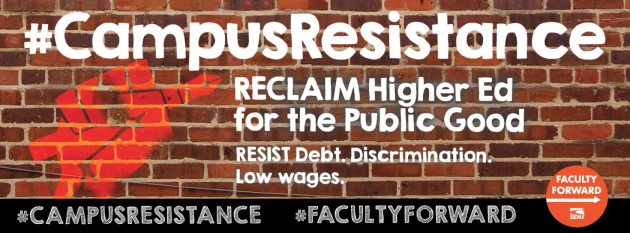The Lilith Blog 1 of 2
March 1, 2017 by Nancy Kalow
Why Being a Union Member is a Jewish Value
 My grandfather was a union-buster. He was the oldest son of Eastern European immigrants, and he simply needed a job. The job he found was working for a consortium of Chicago businessmen to cook up confusion and skepticism among Chicago’s workers, misinforming them about the benefits of coming together to negotiate for better working conditions. I think of my young grandfather’s methods and realize that not much has changed in union-busting techniques since his day: divide the workers, one against the other; make workers think that the company cares about them, and that a union would hurt this special relationship; denounce the motives of the union organizers—as outsiders, an alien third party.
My grandfather was a union-buster. He was the oldest son of Eastern European immigrants, and he simply needed a job. The job he found was working for a consortium of Chicago businessmen to cook up confusion and skepticism among Chicago’s workers, misinforming them about the benefits of coming together to negotiate for better working conditions. I think of my young grandfather’s methods and realize that not much has changed in union-busting techniques since his day: divide the workers, one against the other; make workers think that the company cares about them, and that a union would hurt this special relationship; denounce the motives of the union organizers—as outsiders, an alien third party.
Ninety years later, I’m part of the Duke faculty union, proud to work together with my colleagues and SEIU Faculty Forward as we go through the collective bargaining process with the administration to seek clear, fair standards and a way forward for “contingent” faculty (adjunct teaching staff and the like) to have more job stability. Our union organizing campaign last year faced the same exact techniques my grandfather used to suppress union organizing back in the 1920s. But we did win our union, solidifying our view that universities should resist an increasingly corporate model of higher education that sets aside the leadership and scholarly concerns of faculty in favor of an ever-growing, top-heavy structure of administrators. March 1, 2017 is a national day of campus resistance, demonstrating our continued commitment to worker organizing. At Duke, we are gathered today directly outside our President’s office to make our voices heard.
To me, when workers come together and form a union, their dream of achieving better conditions brings to mind Maimonides: we have an obligation to go further than simply feeding the hungry; we need also resolve to help people become self-sufficient (Mishneh Torah). Texts from the Jewish tradition of social justice assure me that fighting for fairness and for workers is part of my heritage. As Jews, we must “speak up, judge righteously, champion the poor and needy.” (Proverbs 31.9)
As a faculty union, we support other workers, including those, like home care and child care providers, who are rarely championed or seen. Two women showed me the way: Serena and Kay. Serena works for elderly clients in their homes, and Kay is a child care worker. Their efforts for better pay and better working conditions have taught me to “speak up” for their movement, with a sense of the future self-sufficiency called for by Maimonides.
Last year, the three of us—Serena and Kay and I—went to several events to make our case for low-wage workers. In between meetings with politicians, we spent time together and shared our stories. Serena was like a CEO of a major company: an organized problem-solver who knew exactly what each situation demanded. I got a sense for why her clients and their adult children grew to depend on her so much. But Serena made barely over the minimum wage. She was working more than 80 hours a week to make ends meet and support her family. “Some days I can’t afford to put gas in my car, and I have to drive hundreds of miles around North Carolina to get to my clients.”
Kay, a grandmother herself, worked at a day care center. She loves children, and was clearly a born teacher. But Kay’s description of the rapid turnover of child-care workers was startling: the pay is so low (also near minimum wage) that her day care center can’t retain its personnel. The children who attend, and their families, are the ones who suffer from this instability.
My conversations with Kay and Serena taught me that the three of us have common interests: we all hope for job stability, respect for our professionalism and experience, and a livable wage. Rabbi Abraham Joshua Heschel, who marched for civil rights in the 1960s, said, “When I marched in Selma, my feet were praying.” Perhaps for me, resistance, in the form of joining together with other workers and standing up one another, is another type of prayer.
The views and opinions expressed in this article are the author’s own and do not necessarily reflect those of Lilith Magazine.
 Please wait...
Please wait...